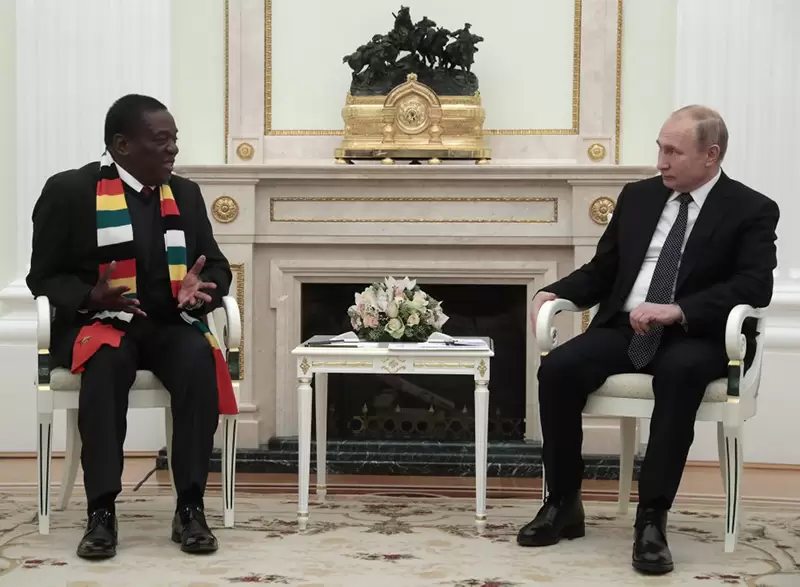By Staff Reporter
RELATIONS between Lusaka and Harare are at their lowest following recent disparaging public utterances by President Emmerson Mnangagwa alleging the northern neighbour was going to bed with Western imperialist.
During his recent visit to Russia where he met Russian President Vladimir Putin, Mnangagwa accused Zambia of allowing the United States to establish military bases in its country, a development he claimed threatened Zimbabwe’s security, which made him feel isolated.
“The West have just begun consolidating their power in Zambia, our next neighbour. You know, there was a time that Zambia and Zimbabwe were one, it was called Northern and Southern Rhodesia. It was one but we’re now separate.
“The Americans are consolidating their power in that country, both in terms of security and financial support to Zambia, to make sure that we feel lonely,” said Mnangagwa then.
Mnangagwa’s uncanny remarks triggered debate in the region, with Zambia interpreting the utterances as a direct affront against its foreign policy and international alliances.
The Zambian government has now officially reached out to the Southern African Development Community (SADC) and the African Union (AU) for mediation in resolving the unfolding diplomatic dispute.
Addressing Parliament last week, Foreign Affairs and International Cooperation Minister, Mulambo Haimbe, called for immediate and decisive action from regional bodies such as SADC and AU to address what he termed an “unwarranted attack on Zambia’s sovereignty.”
“The statements made by President Mnangagwa are not only baseless, but also damaging to the spirit of unity and mutual respect that underpins our regional cooperation,” Haimbe said.
He said Zambia wants both the SADC and the AU to facilitate a thorough and conclusive resolution to the diplomatic rift.
He expressed confidence that these organisations, which are integral to regional stability and cooperation, would take the necessary steps to mediate the dispute effectively.
“We call upon SADC and the AU to address this matter decisively and conclusively to preserve the integrity of our regional partnerships.”
Mnangagwa posited the military cooperation between Zambia and US could pose a security threat to Zimbabwe and the broader region.
Zambian officials argue that AFRICOM’s presence is meant to bolster security and stability, rather than undermine it. Also, Lusaka expressed annoyance at Harare’s “big brother mentality” of interfering in its choice of friends and cooperating partners.
Haimbe, in his parliamentary address, explained that the AFRICOM office in Lusaka is part of a broader initiative to enhance regional security cooperation and capacity-building.
He stressed that Zambia’s alliance with the United States is transparent and should not be misconstrued as an act of regional destabilisation.
“The AFRICOM office is aimed at strengthening our security infrastructure and fostering greater cooperation in combating transnational threats,” Haimbe explained.
“It should not be viewed as a security risk but rather as a testament to our commitment to regional peace and stability.”
The parliamentary debate highlighted the urgency and sensitivity of the situation, with several members calling for calm and constructive dialogue between Zambia and Zimbabwe, which share liberation war history.
In the viral video that has sparked the diplomatic row, the 81-year-old Zanu PF leader is captured in St Petersburg, Russia, telling Russian President Vladimir Putin how the Americans are consolidating their relationship on the security front with the northern neighbour.
He apparently begs Putin to give support to Zimbabwe militarily inorder to be able to counter any possible threats to its sovereignty and territorial integrity.
“Zimbabwe considers the Russian Federation as a consistent global ally. Strength lies in our unity, adaptability and innovation,” the octogenarian leader said while meeting Putin at Konstantino Palace for one-on-one talks ahead of the 27th St Petersburg International Economic Forum early this month.
